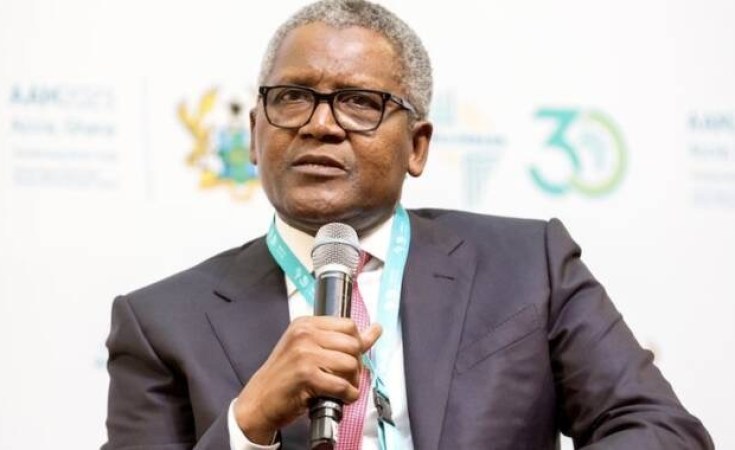The pump price of petrol will likely be increased from N897 to N1,047, N1,100 per litre at NNPCL retail outlets nationwide (depending on the location) as the company has concluded plans to make another adjustment on prices from this morning amid lingering supply hiccups across the country, LEADERSHIP exclusively reports.
Reliable sources told LEADERSHIP yesterday that the latest development resulted from NNPCL quitting its role as the sole off-taker for petrol from Dangote Refinery, allowing other marketers to negotiate prices directly.
According to sources, NNPCL's move to end its sole off-taker role was designed to promote competition and improve supply chain stability.
Experts said that with market forces playing a significant role, petrol pump prices in most cities in the country would likely be between N1,200 and N1,500 as actual prices could be even higher, depending on crude oil prices and prevailing exchange rates.
Previously, NNPCL purchased petrol at N898.78 per litre and sold it to marketers at a subsidised rate of N765.99, absorbing a subsidy of about N133 per litre. LEADERSHIP had reported that experts said NNPCL's quitting its sole off-taker role may increase fuel prices as the subsidy system is dismantled.
However, LEADERSHIP could not reach NNPCL's spokesman Olufemi Soneye for comments. Calls made to his number as of 9:13 p.m. last night failed to connect. Also, earlier messages sent to his WhatsApp were not responded to.
Analysts also said that the latest increase will likely add to public anger because Nigerians are already struggling with inflation of 33.4%, which has driven up transport costs and caused a cost-of-living crisis that led to violent protests in early August.
According to PREMIUM TIMES, the Nigerian Midstream and Downstream Petroleum Regulatory Authority (NMDPRA) document reviewed highlighted the subsidy differentials paid by NNPC in major cities and what Nigerians may pay at the pump without the subsidy.
According to the online publication, data from September 23 to October 4, 2024, shows that NNPC covered an average price difference of N134.5 per litre across the eight cities. With NNPCL no longer the sole off-taker, pump prices at fuel stations are expected to reflect market dynamics influenced by fluctuating crude oil prices and foreign exchange rates. The indicative pump prices calculated with an average NAFEM FX rate of N1,604.89/USD show substantial price hikes across the cities.
In mid-September, the NNPCL increased the price of petrol by 11%, the second increase in two weeks and a day after it started purchasing fuel from the Dangote oil refinery.
Nigeria expects the 650,000 barrels per day refinery to end years of gasoline imports. These imports had been subsidised for decades until President Bola Tinubu began removing support when he took office in May last year. The price of petrol is a sensitive issue in Nigeria. Many households and small businesses use it to power generators because most citizens are not connected to the national electricity grid.
However, Aliko Dangote said yesterday that the Dangote Petroleum Refinery was built without any incentive from the federal government. Dangote spoke at Tuesday's 2024 Crude Oil Refinery-owners Association of Nigeria (CORAN) summit in Lagos.
"We built the Dangote refinery without a single incentive from the government," he said.
Represented by Mansur Ahmed, group executive director of Dangote Industries Ltd, Dangote also said Nigeria needs to stop mortgaging crude oil to enable the country to save for the future. "To ensure sufficient feedstock availability, we must stop mortgaging crude. Unfortunately, while countries like Norway are putting oil proceeds into a future fund, we are spending oil proceeds from the future in Africa," Dangote said.
He said the country would also need to prioritise implementing the domestic crude supply obligations, adding that it would need to expand crude oil production capacity to support demand from new refining capacity.
"The government of President Bola Ahmed Tinubu is taking active steps to achieve this through fast-tracking IOC divestments and other initiatives," he said.
In Nigeria's becoming a net petroleum products exporter and an energy-sufficient country, he said the government would need to build 1.5 million barrels per day of refining capacity. This will not be an easy feat, and strong government support will be required to achieve this," he said.
Meanwhile, the federal government has announced Dangote Refinery's approval as Nigeria's airline operators' sole jet fuel supplier, Jet A1. The Minister of Aviation, Festus Keyamo, revealed this information during an interview with Channels TV, which aired on Tuesday.
With his approval and support, Keyamo stated that the airline operators agreed to allow the 650,000 bpd refinery to be the exclusive provider of jet fuel to the operators.
He explained that the timing is ideal, as the federal government recently implemented the naira-for-crude agreement with Dangote. He emphasised that this arrangement would help ease the pressure on foreign exchange.
"The airline operators just met recently. With my blessing, it's a decision from the airline operators in Nigeria that they should only buy from Dangote refinery Jet A1.
"You can see that yesterday we started a naira-for-crude purchase with Dangote. It's all Naira, no Dollar component," Keyamo said.
Additionally, Keyamo noted that sourcing petrol from Dangote would shield airline operators from crude oil price fluctuations, ultimately reducing operational costs.


